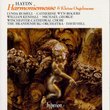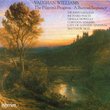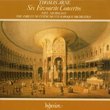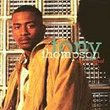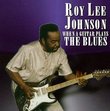| All Artists: Robert [Composer] Simpson, Vernon Handley, Royal Liverpool Philharmonic Orchestra Title: Robert Simpson: Symphony No. 10 Members Wishing: 2 Total Copies: 0 Label: Hyperion UK Release Date: 11/19/1993 Album Type: Import Genre: Classical Styles: Historical Periods, Modern, 20th, & 21st Century, Symphonies Number of Discs: 1 SwapaCD Credits: 1 UPC: 034571165103 |
Search - Robert [Composer] Simpson, Vernon Handley, Royal Liverpool Philharmonic Orchestra :: Robert Simpson: Symphony No. 10
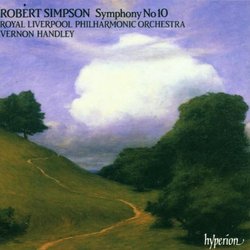 | Robert [Composer] Simpson, Vernon Handley, Royal Liverpool Philharmonic Orchestra Robert Simpson: Symphony No. 10 Genre: Classical
|
Larger Image |
CD DetailsSimilar CDs
|
CD ReviewsWell worth the effort! Geoffrey Brock | London United Kingdom | 01/10/2001 (5 out of 5 stars) "The good news is that Robert Simpson is one of the more approachable composers of the 20th century, using classical musical strucures such as the symphony, and diatonic harmonies. The slightly less good news is that the tenth symphony of 1988 is undoubtedly more difficult than his earlier ones. Having said that, it is well worth the effort to get to know, and with familiarity will come a deep admiration for an amazing and thrilling work.It is a huge piece of almost an hour in traditional four movement form. The notes in the Hyperion CD are very helpful with a full musical analysis (increasingly rare these days). Or you can sit back and be swept along by the forces that are typical of Simpson's symphonies - exciting and powerful.As with the other recordings in the Hyperion cycle of Simpson symphonies, Vernon Handley and the Royal Liverpool Symphony Orchestra play together brilliantly and the recording quality is second to none." 20TH Century Beethoven, but no mimicry involved! Aaron Z. Snyder | CHESTNUT HILL, MA USA | 12/19/2009 (5 out of 5 stars) "This is a CD I snapped up immediately upon its release about 15 years ago, and I wasn't disappointed. I had already been greatly impressed by Simpson's 9th, and, although this 54-minute work seemed a bit daunting by comparison, it took just a few listenings to "get it". What we have here is a modern symphony structurally based on Beethoven's Hammerklavier Sonata. That is, it has a strong, declarative first movement, a brief and and relatively light scherzo, a profound slow movement, followed by a fugue-to-end-all-fugues. That final movement should leave you breathless by its conclusion.
In 2001 I had the rare pleasure of meeting "Tod" Handley, and told him how much I had enjoyed his recordings of the Simpson symphonies, especially the 10th. I mentioned that I was exhausted by the end of that symphony. His response: "Believe me, we were ALL exhausted by the time we reached the end!" Oddly, some musicologists don't think that the 10th represents Simpson's best efforts. I respectfully disagree, and strongly suggest exploring this exciting work." |

 Track Listings (4) - Disc #1
Track Listings (4) - Disc #1